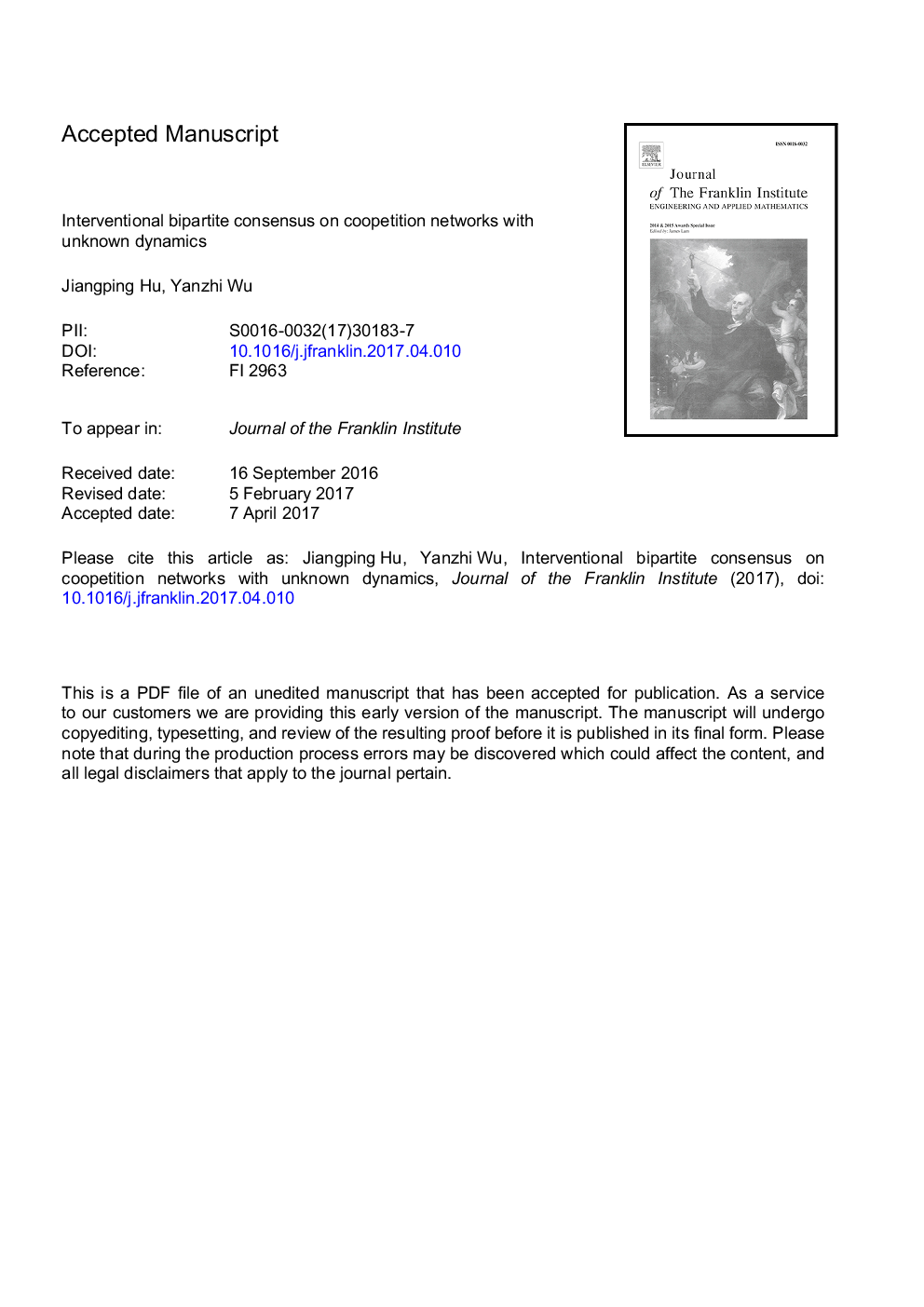| Article ID | Journal | Published Year | Pages | File Type |
|---|---|---|---|---|
| 4974202 | Journal of the Franklin Institute | 2017 | 23 Pages |
Abstract
In this paper, an interventional bipartite consensus problem is considered for a high-order multi-agent system with unknown disturbance dynamics. The interactions among the agents are cooperative and competitive simultaneously and thus the interaction network (just called coopetition network in sequel for simplicity) is conveniently modeled by a signed graph. When the coopetition network is structurally balanced, all the agents are split into two competitive subgroups. An exogenous system (called leader for simplicity) is introduced to intervene the two competitive subgroups such that they can reach a bipartite consensus. The unknown disturbance dynamics are assumed to have linear parametric models. With the help of the notation of a disagreement state variable, decentralized adaptive laws are proposed to estimate the unknown disturbances and a dynamic output-feedback consensus control is designed for each agent in a fully distributed fashion, respectively. The controller design guarantees that the state matrix of the closed-loop system can be an arbitrary predefined Hurwitz matrix. Under the assumption that the coopetition network is structurally balanced and the leader is a root of the spanning tree in an augmented graph, the bipartite consensus and the parameter estimation are analyzed by invoking a common Lyapunov function method when the coopetition network is time-varying according to a piecewise constant switching signal. Finally, simulation results are given to demonstrate the effectiveness of the proposed control strategy.
Related Topics
Physical Sciences and Engineering
Computer Science
Signal Processing
Authors
Jiangping Hu, Yanzhi Wu,
